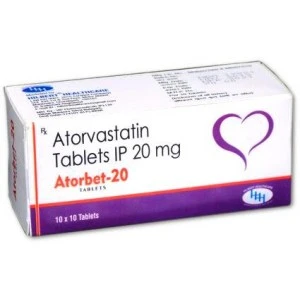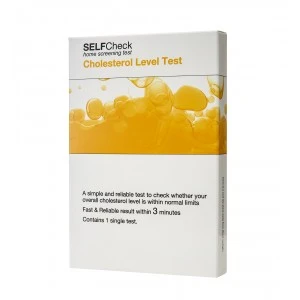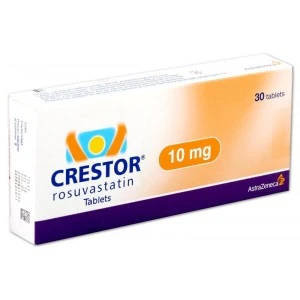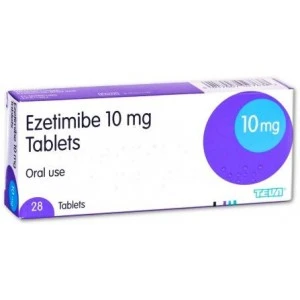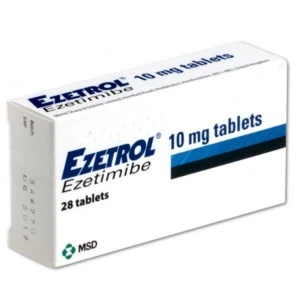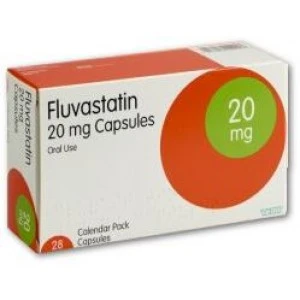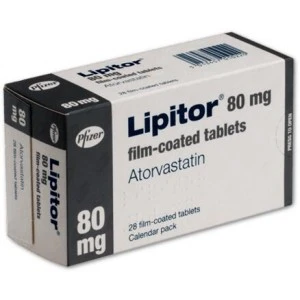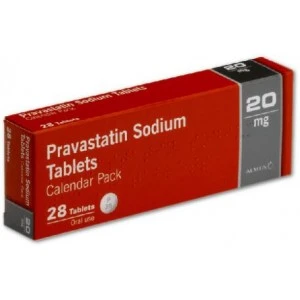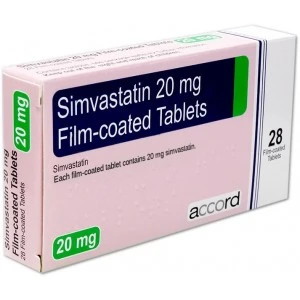High cholesterol
High cholesterol can increase your risk of cardiovascular disease and stroke. Find treatment and further information about managing your cholesterol levels below.
Atorvastatin
- Reduces cholesterol level
- UK licensed medicine
- Available from our trusted UK pharmacy
Cholesterol Level Test
- Results within minutes
- Easy to use
- Accurate results
Crestor (Rosuvastatin)
- Branded treatment
- Taken once daily
- Reduces risk of heart disease and stroke
Ezetimibe
- Reduces heart disease risk
- Once-a-day tablet
- Available from a trusted online UK pharmacy
Ezetrol
- Prevents heart disease
- Reduces cholesterol
- Dispatched from our UK-registered pharmacy
Fluvastatin
- Lowers LDL cholesterol
- Reduced risk of CVD
- Available from a UK-registered pharmacy
Lipitor
- Branded medication
- Effectively lowers LDL
- Available from our trusted UK pharmacy
Pravastatin
- Cholesterol-lowering drug
- Prevents cholesterol buildup
- Available from our registered UK pharmacy
Simvastatin
- Lowers bad cholesterol
- Reduces stroke risks
- Available from our UK-registered pharmacy
What is cholesterol?
Cholesterol is a fat (lipid) created by our liver and found in our food.
It is a necessary substance found in our cells in our entire bodies. Cholesterol is a crucial component in the production of hormones and vitamin D, as well as in the creation of bile, which aids our bodies in breaking down the food we eat into nutrients that can be easily absorbed into our bloodstream.
There are two primary types of cholesterol: low-density lipoproteins (LDL) and high-density lipoproteins (HDL). However, they are sometimes referred to as "bad" and "good" cholesterol.
HDL, or "good" cholesterol, helps transport cholesterol to the liver, which can be broken down and excreted from your body.
LDL, or "bad" cholesterol, transports cholesterol to cells for use. However, if more LDL than needed is transported, it can accumulate in the arteries, leading to the formation of plaque that restricts blood flow.
While labelling cholesterol as either good or bad is easy, the truth is more complicated than that. The cholesterol we call "bad" only becomes a problem in abundance.
Moreover, high cholesterol can be inherited, a condition known as familial hypercholesterolaemia (FH). This is a genetic condition and isn't easily treated with lifestyle changes.
What are the complications of high cholesterol?
When cholesterol builds up against the arterial walls, it restricts blood and oxygen flow to the muscles and, more importantly, the brain. Additionally, the restricted blood flow increases your risk of blood clots, which can lead to heart attacks and strokes.
If high cholesterol goes untreated, it can increase your risk of complications such as:
Atherosclerosis (hardening and narrowing of the arteries)
Cardiovascular disease (CVD)
Heart attack
Peripheral arterial disease (PAD)
Stroke
Transient ischaemic attack (TIA or "mini-stroke")
A blood test can determine whether your cholesterol levels are too high. You can buy a Cholesterol Level Test online from Prescription Doctor. Our rapid blood tests can provide accurate results within minutes, clearly indicating whether your cholesterol level is high.
Lowering your cholesterol
Aside from medications, several lifestyle changes can help lower your cholesterol and reduce your risk of complications.
Foods which are high in saturated fats, such as red meat, pastries, cheese, cakes and biscuits, can increase the level of cholesterol in your body. Restricting the consumption of these foods can help prevent cholesterol from building up further and even reduce cholesterol levels.
Opt for foods rich in unsaturated fats, such as fish, nuts, avocados, and sunflower or olive oil, rather than coconut and palm oil. Check the label on the food you buy and make conscious choices to eat foods lower in saturated fats. It's always a good idea to eat plenty of fruit and vegetables, which are packed full of fibre. Side note: while eggs contain cholesterol, they are unlikely to have a detrimental effect on the amount of cholesterol in your blood, though you might want to choose to poach, boil or dry-fry your eggs rather than fry them to reduce the amount of saturated fat.
Drinking more than the recommended limit of alcohol, which is 14 units, can increase your body's cholesterol. Cutting down on alcohol consumption by having more drink-free days can help you lower your cholesterol levels.
Exercising is also an effective way to reduce cholesterol levels. This is because exercising regularly helps the body to use fat as an energy source. The NHS recommends aiming for 2.5 hours of exercise a week - walking, running, cycling, swimming, playing a sport like football or rugby, or dancing.
Smoking can deposit fat in your blood vessels, raising cholesterol and increasing your risk of stroke and heart attacks. Aside from lowering your cholesterol, quitting smoking has many other benefits. Speak to your GP for help and advice.
Taking statins for high cholesterol
If you are having difficulties lowering cholesterol, your doctor may prescribe a type of medicine called statins. You may also be prescribed statins if you have CVD or are at an elevated risk of developing CVD over the next 10 years.
Statins are tablets taken once daily to keep your LDL levels low. According to Heart UK, statins can lower your cholesterol level by between 30% and 50%, reducing your risk of heart attacks and stroke.
These are the most commonly used medicines to slow the process of making LDL-cholesterol in the liver. They do this by prohibiting the action of an enzyme that speeds up the production of LDL-cholesterol, called HMG-CoA-reductase.
Examples of statins include:
Statins are not suitable for women who are pregnant or breastfeeding. If you become pregnant while taking statins, speak to your doctor right away.
Statins can interact with other medicines, such as:
Amiodarone (for irregular heartbeats)
Antibiotics
Antifungals
Antiretrovirals (for HIV)
Calcium channel blockers
Ciclosporin (immune suppressant)
Danazol (for endometriosis)
Fibrates (for high cholesterol)
Warfarin or Clopidogrel (to prevent blood clots)
Some statins are also affected by the consumption of grapefruit. Grapefruit contains a chemical that interferes with enzymes in the body responsible for metabolising drugs. In the case of statins, grapefruit can increase the amount of the active ingredient present in the system, potentially leading to a higher risk of side effects.
While it is safe to drink alcohol whilst taking statins, you should avoid exceeding 14 units per week. Excessive alcohol consumption can increase your risk of side effects.
Taking ezetimibe for high cholesterol
Ezetimibe, also known as the brand Ezetrol, is a newer drug for treating high cholesterol. Whilst ezetimibe is an alternative to statins and can be taken on its own, ezetimibe is often prescribed as a complementary treatment alongside a statin. A doctor may prescribe both a statin, such as simvastatin, and ezetimibe to more effectively lower cholesterol levels. When taken in conjunction with a cholesterol-lowering diet, ezetimibe is an effective treatment.
Ezetimibe works in a slightly different way to statins. Rather than stopping the production of cholesterol in the liver, ezetimibe inhibits the absorption of cholesterol from food into the bloodstream. As a result, less cholesterol is present in the blood.
While both ezetimibe and statins are contraindicated in breastfeeding women, the safety of ezetimibe during pregnancy is dependent on whether it is taken alongside a statin. It is always best to speak to your doctor before taking any medication if you are pregnant or breastfeeding.
It is safe to drink alcohol whilst taking ezetimibe, just like with statins, so long as you stick to the recommended limit of 14 units per week.
Additional resources
What foods cause high cholesterol?
Authored & Reviewed By

Mohamed Imran Lakhi
MPharm - Lead PharmacistPublished on: 13/11/2019 Reviewed on: 28/04/2023
© 2013 - 2026 Al Muhsineen Limited. All Rights Reserved. Registered Pharmacy: 34 Halliwell Road, Bolton BL1 8RL. Registered Office: 254 First Floor, Shearbrow, Blackburn, England, BB1 8DS

